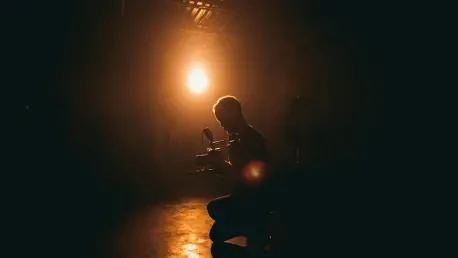In the dynamic world of filmmaking, the past few years have witnessed a monumental shift marked by the integration of AI-driven technologies. These advancements challenge traditional filmmaking processes, posing the question: Are these tools redefining what it means to be creative? Artificial intelligence, previously a mere supplement to human ingenuity, is now taking center stage. With platforms like Google’s Veo 3 and Flow, the process of filmmaking is becoming increasingly automated. The prospect of creating comprehensive cinematic scenes with text descriptions is no longer confined to science fiction. The gap between idea and execution is shrinking rapidly, as AI programs generate scenes, dialogues, and intricate cinematic elements with remarkable ease. By drastically cutting costs and time, these new systems give individuals unprecedented access to what was once an exclusive domain for major studios and sizable crews.
Universal Access to Filmmaking
The democratization of filmmaking is one of the most striking impacts of these AI advancements. Historically, filmmaking required substantial financial investment and access to expensive technology, often restricting it to well-funded studios and experienced professionals. AI tools have transformed this landscape, empowering emerging creators willing to bring their unique stories to the screen. Platforms like Midjourney, Sora, and Luma’s Dream Machine facilitate the rapid transformation of rudimentary ideas into polished visual narratives within minutes. This has turned the tide, allowing diverse voices to engage in filmmaking, previously marginalized due to resource constraints. Such tools cater not just to professionals but to anyone with a vision, driving a paradigm shift in creative expression. The speed and efficiency of AI capabilities enable creators to experiment with narratives, visual effects, and storytelling formats without traditional constraints.
However, while these potentials are revolutionary, the same tools present a challenge in the saturation of content, necessitating a discerning approach to storytelling. The newfound ease of production increases the quantity of visual content produced, demanding more innovative narratives to stand out. Different platforms emphasizing speed and showcasing quick results now prioritize content quality and uniqueness. Thus, while AI opens doors for broader participation in filmmaking, it simultaneously challenges creators to transcend the convenience offered and focus on crafting stories that resonate emotionally and culturally.
AI and the Depth Challenge
Despite AI’s technical prowess, significant debates persist about its capacity to infuse depth and emotional richness into films. Critics often highlight that, while AI can significantly enhance visual effects, mere aesthetics fall short of embodying the soul of the story. The essence of filmmaking extends beyond vivid imagery; it involves crafting narratives, rhythms, and emotions that offer innate human experiences. This intangible quality poses a hurdle for artificial systems, which, while adept at various technical tasks, often struggle to replicate the depth of empathy, imagination, and cultural understanding inherent in human creators.
Experts argue that certain aspects of storytelling—particularly those capable of provoking a deep emotional response—remain exclusively within the human domain. AI can mimic human cognitive patterns with impressive accuracy, yet its capability to understand and convey complex emotions is limited. While AI-generated tools can assist in realizing specific creative aspects, the heart of filmmaking often lies in the nuanced intricacies of human experience that AI struggles to genuinely replicate. Even when AI develops complex narratives, the ability to capture the core of human sensation is a significant challenge. As AI continues to evolve, the dialogue between human creativity and artificial assistance remains central to the industry’s ongoing debates.
Industry Perspectives on AI Filmmaking
The reaction across the filmmaking industry to AI tools reflects both excitement and concern, highlighting divergent views on creativity’s essence. Industry stalwarts, including actor Ben Affleck, emphasize the irreplaceable value of human-driven storytelling. He differentiates craftsmanship from artistry, underscoring that true artistic endeavors rely on human taste and discernment, traits AI cannot fully emulate. Such perspectives fuel ongoing discussions on maintaining creativity’s authenticity amid technological advances. These debates feature prominently at film festivals and industry gatherings, where creators contend with achieving striking visuals and meaningful narratives.
The potential synergy between human intuition and AI-driven productivity remains a subject of contentious discussion. As platforms like YouTube, Instagram, and TikTok showcase AI-generated content, such examples reflect the tools’ current capabilities yet underline the necessity to maintain significant human input. The scenario extends beyond generating eye-catching visuals to encompass impactful storytelling. Notably, films like The Brutalist showcase AI’s integration within cinematic projects. However, major studios have yet to debut fully AI-generated feature films, signaling measured adoption amidst discussions on maintaining storytelling integrity.
Navigating the Future of Cinematic Expressions
AI advancements have significantly democratized filmmaking, historically an industry requiring hefty investments and expensive technology, limiting access to wealthy studios and seasoned professionals. With AI tools, this dynamic has dramatically changed, enabling budding creators to bring their unique stories to life. Platforms like Midjourney, Sora, and Luma’s Dream Machine empower users to transform simple concepts into polished visual narratives quickly. This shift allows for diverse voices to be heard in filmmaking, previously marginalized due to limited resources. These tools are designed not only for professionals but for anyone with a vision, fundamentally shifting creative expression. AI’s speed and efficiency let creators experiment with storytelling, visuals, and formats beyond traditional boundaries. However, this accessibility leads to content saturation, challenging storytellers to stand out with quality and originality. Even as AI broadens filmmaking participation, it demands creators focus on narratives that resonate emotionally and culturally, ensuring their work rises above the convenience AI offers.









